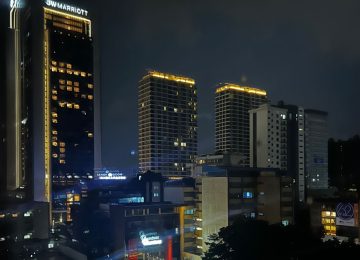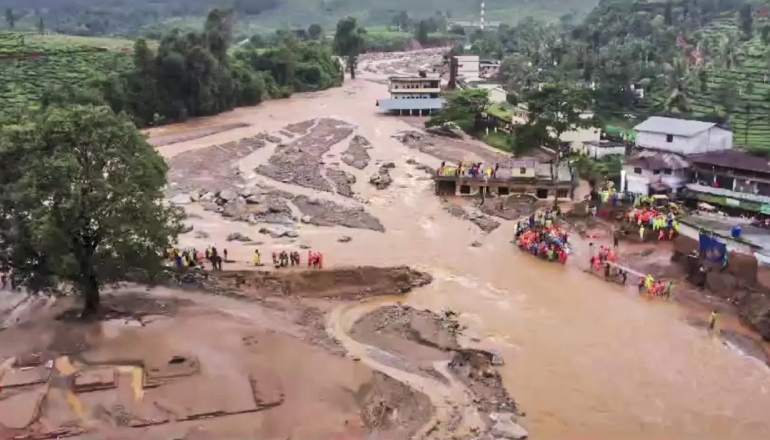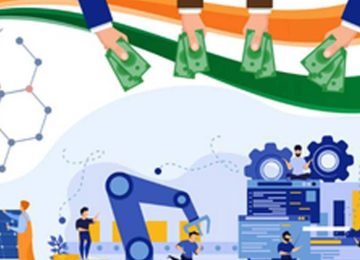Climate change was the core of an interesting panel discussion.
The key takeaways from the ASSOCHAM webinar titled, Leading the way: Driving environmental innovation held on the World Environment Day 2024.
The panel comprising Dr Mansa Nagabushanam – Chair DEI Assocham South Director, Centre of Excellence for Sustainability, and Director (Academics, research and administration), Ramaiah Institute of Management, Bangalore; L Sridhar, ESG Head, Bangalore International Airport Limited, Dr Suma Krishnaswamy, Founder President, Cambium Biotechnologies, was moderated by Renjini Liza Varghese, CEO, WriteCanvas.
Renjini set the ball rolling for the webinar with startling statistics: India experienced over 165 deaths in June, highlighting the urgent need for fresh solutions and a collaborative approach to mitigate climate change. She initiated the discussion by highlighting the increasing number of climate casualties, particularly due to rising temperatures.
Key takeaways:
Dr. Mansa Nagabhushanam, Chair DEI Assocham South Director, Centre of Excellence for Sustainability, and Director (Academics, research and administration), Ramaiah Institute of Management: Political leadership vital to equip policymakers to create effective action plans
- Rapid urbanization in Bangalore has led to a rise in groundwater levels, potentially disrupting the cosmic cycle if water is depleted.
- The industry body has a significant influence on policymakers and stakeholders, but this awareness must be converted into action for the country’s future.
- Political leadership is crucial for providing policymakers with the necessary information, data, and research to develop effective action plans.
- Implementation is the main challenge, necessitating a mindset change and awareness, with a bottom-up approach being more effective in sustainability.
- Incubation centers are fostering start-ups in the sustainability sector, both tech and non-tech-based. For example, we have created a self-learning course on sustainability for corporates, ranging from basic to mid-level and senior managers, featuring gamified content. The multi-stakeholder approach involves policy makers, industry bodies, and even MSMEs.
Dr. Suma Krishnaswamy, Founder President, Cambium Biotechnologies: Synergy between self-help groups and NGOs needed to create a multi-stakeholder circular economy
- Farmers face challenges due to excessive or insufficient water, long fertilizer usage, and ecosystem imbalance.
- The green revolution has increased depletion of fertilizers, necessitating awareness and government support for reversing to natural farming.
- Farmers must adopt organic methods to preserve soil, ecosystem, and consumers.
- For 20 years, we have advocated for natural farming, requiring farmers to convert to natural methods instead of fertilizer or pesticides.
- However, obtaining a license for plant-based pesticides is challenging due to their non-agrochemical category.
- This creates a gap in efficiency and requires policy changes at individual levels.
- Plant-based pesticides could be a starting point, with cooperative movements like women’s self-help groups attempting to manufacture these at a cottage level.
- To market a circular economy, a synergy between self-help groups and NGOs is needed to create a multi-stakeholder circular economy.
- Indigenous agriculture should balance conservation and productivity, focusing on species diversity and soil preservation.
- Advanced agriculture may be profitable, but it may harm the ecosystem in the long run.
- Traditional, healthy, and nutritive varieties are disappearing, while high-yielding crops may be profitable but detrimental to the ecosystem.
- However, there is a gap in ideas and resources, as there is no consensus on how to effectively implement these solutions.
Use Case: Bangalore International Airport Limited
L Sridhar, Head, ESG, Bangalore International Airport Limited (BIAL): Addressing climate change risks and implementing a business continuity plan is crucial
- Our airport sustainability strategy 2030 is focused on six key pillars: water stewardship, net zero carbon emissions, community-aligned noise management, sustainable procurement, sustainable mobility, and circular economy.
- BIAL, a carbon neutral airport since 2017, is water positive with a 2.36 score and plans to achieve 100% of its portable water requirements through rainwater harvesting.
- The organization is voluntary in contributing and taking up activities, not being regulated by many disclosures due to being a non-listed entity.
- Management emphasizes the need for strong commitment and support for the organization’s sustainable agenda, emphasizing the importance of a methodology for identifying opportunities and collaborating effectively.
- Economic sustainability is crucial for preserving people and the planet, and growth should not only be economic but also consider the people and planet aspects.
- As passenger volumes increase, terminal expansion is necessary.
- Addressing climate change risks and implementing a business continuity plan is crucial. Consistency is essential for sustainability journeys.
- To manage the e-factor, the highest green-rated building is built, focusing on resource efficiency, circular economy, water stewardship, net zero emission energy efficiency, indoor air quality, and natural lighting.
- Innovation is crucial for mitigation, and balancing the three Ps in infrastructure expansion strategy can help overcome challenges.
- Sustainable growth and responsible growth are essential, and aspiring professionals should become sustainability professionals.
- An architect should align with sustainability principles and contribute to innovation, especially in process areas.
- Collaboration is key in delivering sustainability ideas, and a separate innovation team should collaborate across the organization.
- Change effects should occur everywhere, and sustainability should be seen as a payback, regardless of the short, medium, or long term outcomes. Aligning with these principles can lead to fruitful concepts and successful implementation.











